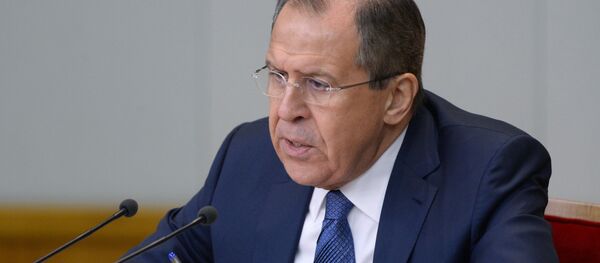The post-WWII world order has been built on the principle of respect for generally accepted rules of international conduct, abandoning the hitherto prevalent “might is right” approach.
These documents prohibit use of force between nations (unless sanctioned by the UN or in-self defense) or interference by one state in the domestic affairs of another. But even though the US, as a UN member, is fully bound by these rules, it has been flouting them for decades. As it happens, the US brooks no restraint on its self-arrogated right to impose regime change abroad. Countries that resist are doomed to ruination. Those few not fully under America’s control are expected, if pushed, to keep backing down indefinitely.
In the last 20 years the US has illegally attacked Afghanistan, Iraq, Yugoslavia, Libya and many other countries. In others, such as in Ukraine, Syria, Egypt or Georgia, Washington has stirred domestic trouble in an effort to topple disobedient governments and install more pliant rulers.
The Washington-sponsored 2014 Ukrainian coup d’etat is another example. It was a clear violation of Ukraine’s sovereignty by Washington, committed in contravention of the UN Charter. The coup set in motion the events that led to the country's effective disintegration, making the US fully responsible for Ukraine’s changed borders.
Once a peaceful nation, Ukraine now finds itself in the throes of a civil war and a permanent political crisis. Since its independence in 1991 the country had come to be ranked as one of the poorest in Europe, yet the 2014 coup brought such crushing poverty that most Ukrainians can now only dream of the life that had before. And for ordinary people things are set only to get worse.
Washington had always coveted Ukraine, a country it saw as key to imposing a chokehold on Russia. So it worked hard to drag Ukraine into NATO, a goal it couldn’t achieve by democratic means.
The US then worked to undermine and eventually topple president Viktor Yanukovych, seen as too slow in his West-integration efforts. As lawful authority in Kiev collapsed, local communities across the country defied the usurpers.
Ever since the Euromaidan coup, Russia has strived to preserve Ukraine’s territorial integrity. It has been pushing for Ukraine to remain a whole country, but with more powers delegated from the center to its ethnically diverse regions (a useful expedient to defuse possible separatist leanings).
Russia has upheld international law by respecting the Crimea’s self-determination and sought to preserve Ukraine's unity by withholding, despite Kiev’s brutal war on the local populations, recognition of the self-proclaimed Donbass republics.
In Syria the US has been waging a proxy war against the country at least since 2011, trying to overthrow the government of president Bashar Assad.
In the end it was Russia that blocked the US efforts to topple Syria's government and organized the start of the peace process in the war-torn nation. By pursuing the rule-based approach to international affairs, not only did Russia safeguard Ukraine and Syria’s sovereignty in the face of the US-led regime change efforts, but it also compelled Washington, if only partially, to reckon with the primacy of international law. As events show, the Russian and American attitudes towards international law can’t be more different.
The US still can’t shake its old habit of imperial domination, subscribing as it is to the 19th-century dictum “might makes right”. By contrast, Russia is a stickler for the stringent application of international law, in effect acting as the ultimate guarantor of the rule-based world order. This gives hope that it will survive against Washington’s encroachments.





